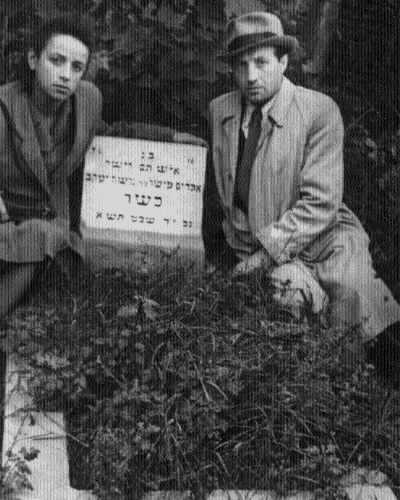
Although Hitler's "Final Solution" to the Jewish "problem" had not succeeded, the Jewish population of Lodz, numbering over 200,000 before the war, had now been decimated. As in the case of many survivors, after being liberated my mother found herself alone with no family other than her sister Ruth. Ruth Kuszer soon got together with another Holocaust survivor, Icek Cytrynowski, who had also lost his family, including his wife and a young son. Icek and Ruth married soon after liberation.

My mother also met another survivor, Godel Mydlarz, whom she married. Godel had been a shoemaker - a clicker (making shoe uppers) - before the war. When they married, Godel moved in with Raizele into where her family lived before the war, into Ulica Kamienna 7. He shifted his sewing machine and other tools to that place, and ran his business from there.
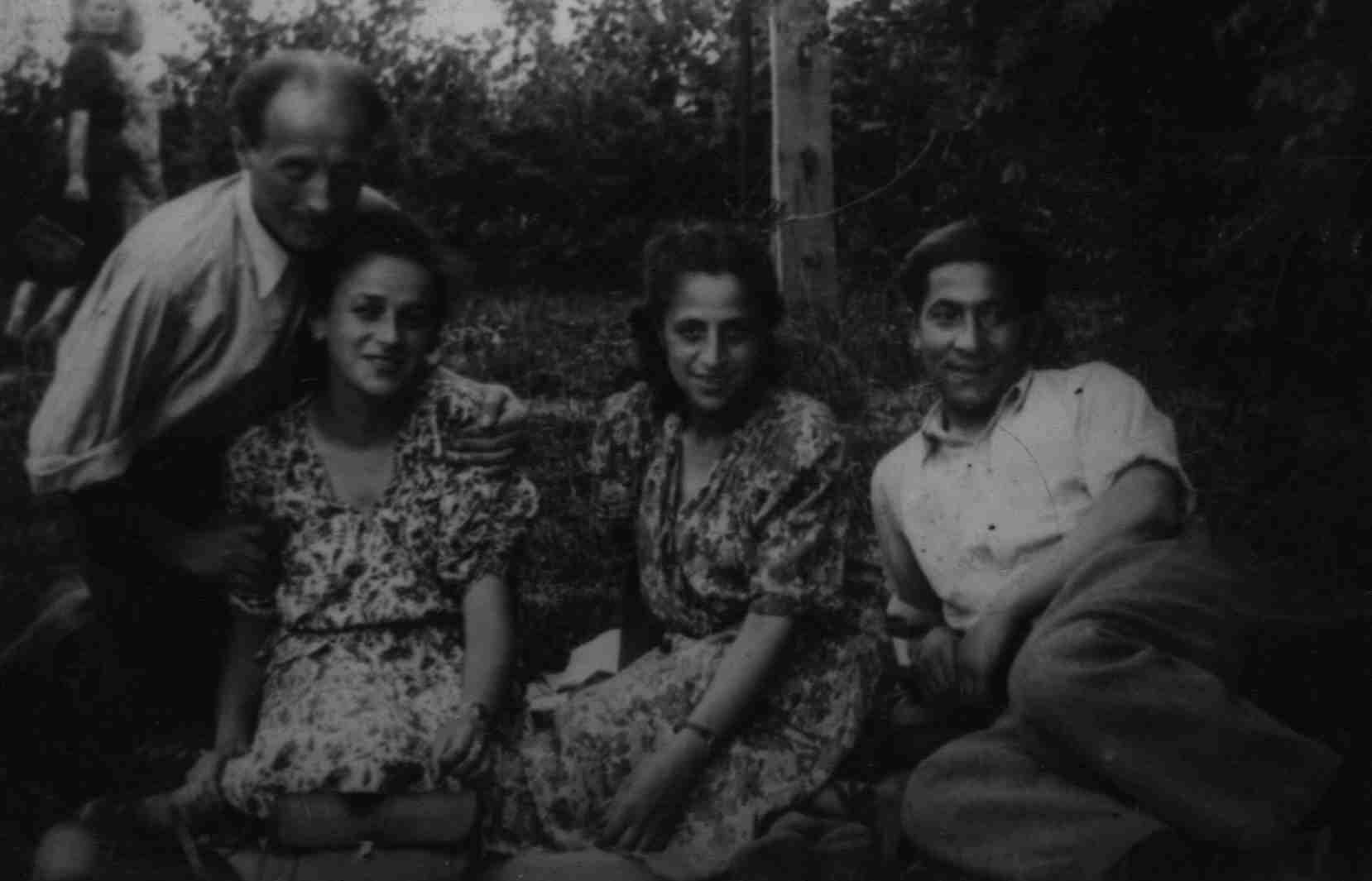
Although Ruth and Icek Cytrynowski left Poland soon after the war, settling in Melbourne, Australia, where they had two children, many Polish Jews, including my parents, chose to stay in Poland which they still considered their homeland.

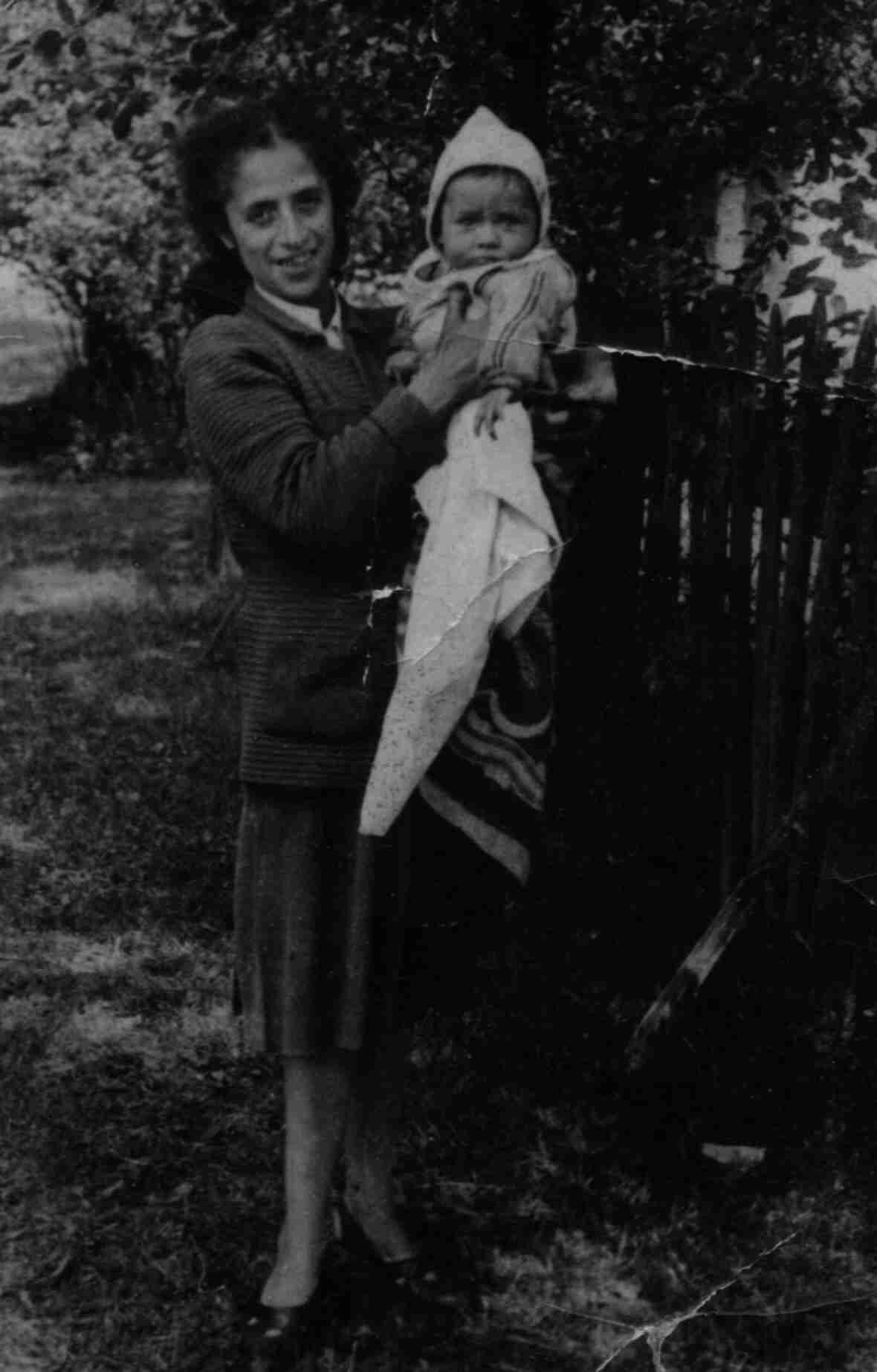
For a short while, I think for my first two years, I lived at Ulica Kamienna 7. I have a vague recollection of a pot-belly stove with a long and circuitous flue running up through the single room. We then shifted to Ulica Jaracza 15, also in Lodz, where I would live until we migrated to Australia at the end of 1957.
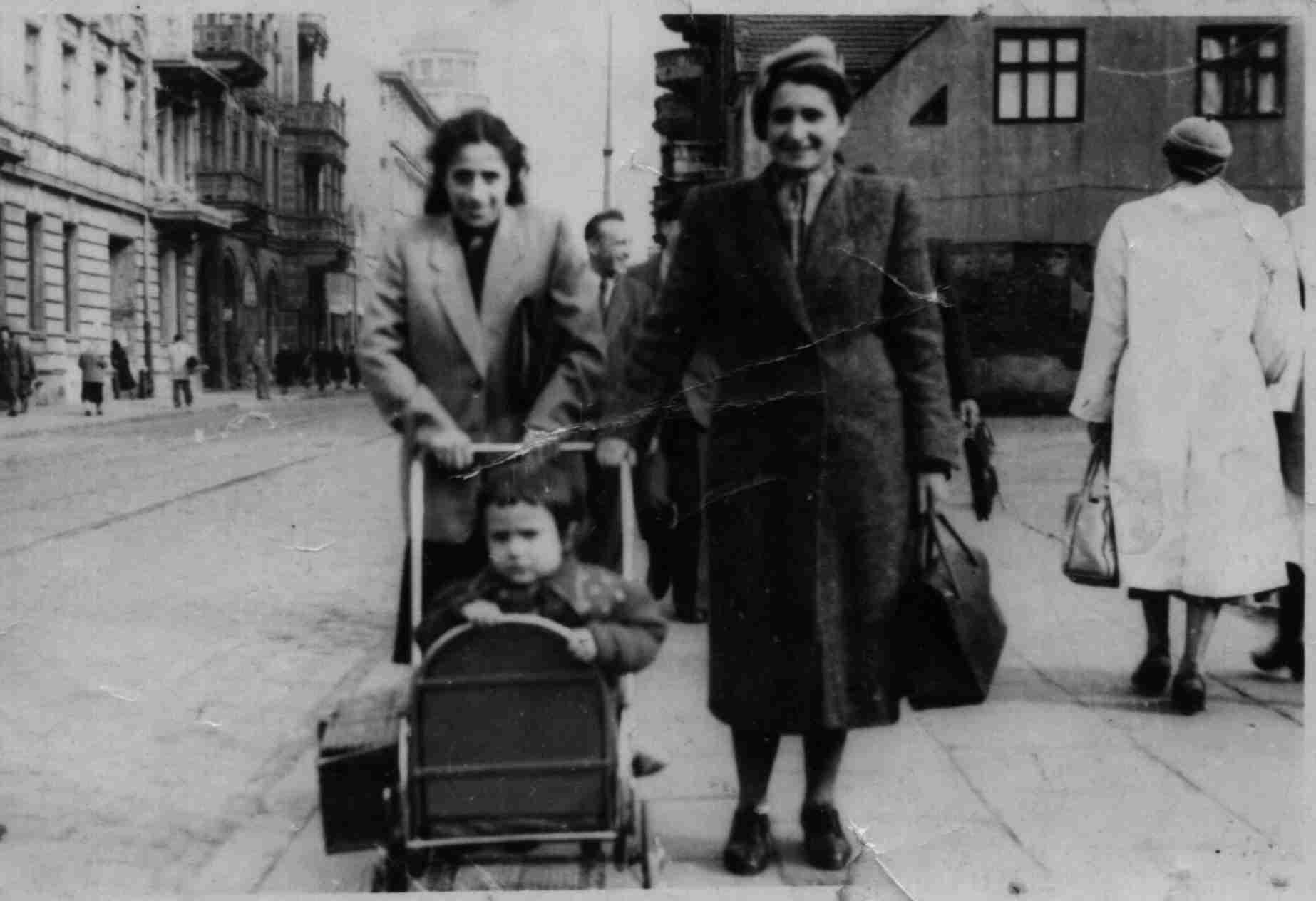
Our apartment was on the ground floor of a typical 4 storey Lodz block, with a single room doubling up as our bedroom and living quarters. My father's heavy-duty sewing machine and tools were in a dingy narrow workshop next to the main room. A small area, about two by two metres, next to the workshop was a sort of a kitchen.
In the kitchen was a small table-top gas stove and a small triangular sink. There was no toilet - a filthy communal toilet was located at the opposite end of the courtyard inside the apartment block. Naturally there was no hot water. The cold water would tend to freeze in winter, and we would keep it running by lighting a small kerosene-filled jar under the pipe leading to the tap.
Post-war Lodz abounded with graffiti swastikas on most building walls. It was common for my parents and I to be called "Parszywy Zyd" - a derogatory term levelled at Jews in Poland, as well as be told that "Hitler was right" and "Go back to Jerusalem, Jew". These comments became routine, to the point where we just ignored them, although my mother, whose command of the Polish language was excellent, would sometimes snap back a cutting comment.
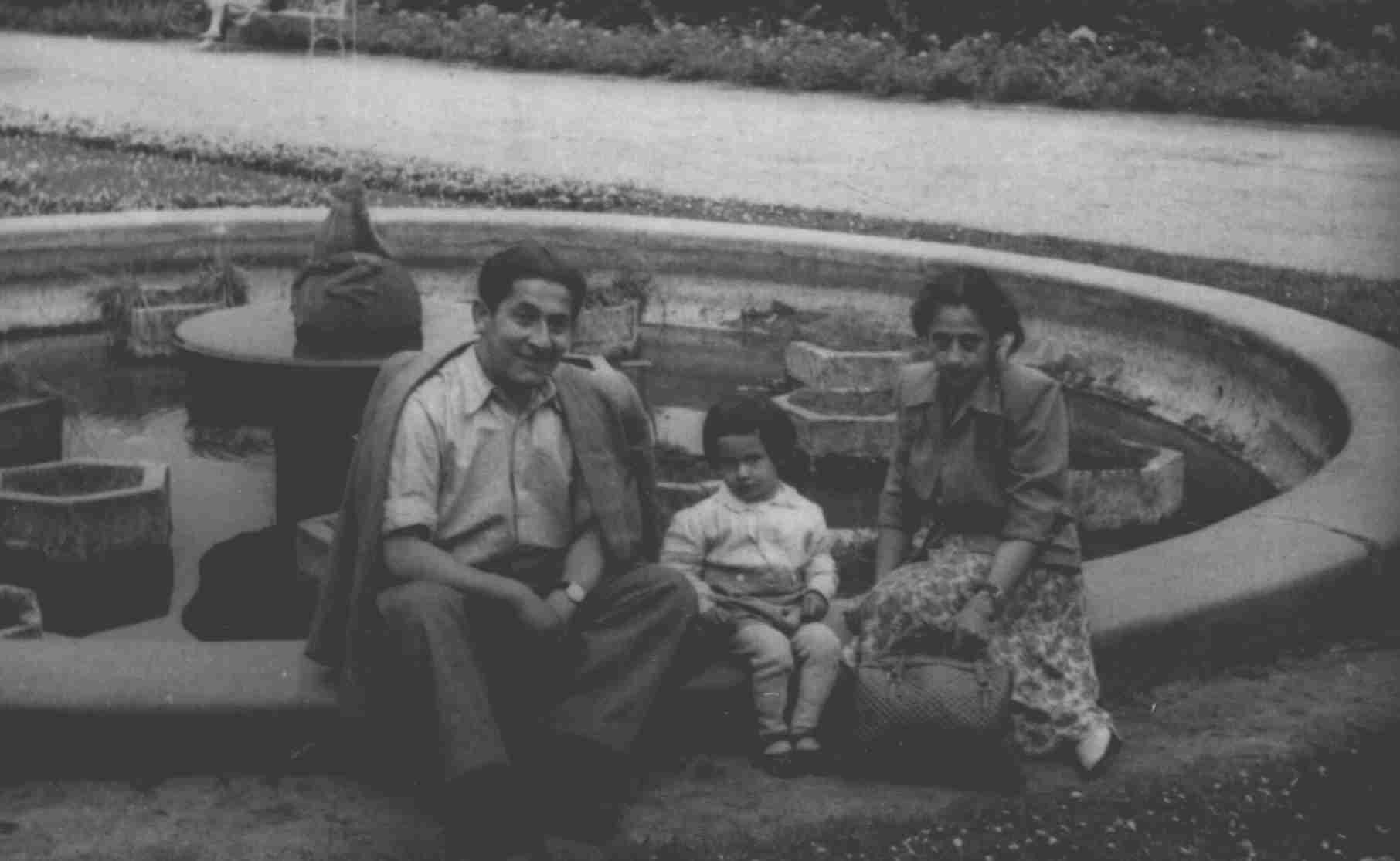
My father worked at his trade at our home in Ulica Jaracza. He was a "clicker" - a master craftsman in making shoe uppers for a wide variety of clients, ranging from average folk to police and dignitaries. He would make custom ordered uppers, which the client would then take to have fitted with soles. That was how shoes were made in those times. My mother helped him much of the time in the various tasks involved in shoemaking. As well as that she was a dutiful housewife. As I grew up I would occasionally assist in sewing leather and other small tasks.
Neither of my parents were orthodox Jews. Many Jews had abandoned orthodoxy after the Holocaust, questioning why God would do this to his "chosen people". My parents did, however, observe the main Jewish Holy days of Rosh Hashana, Yom Kippur and Passover, and my father attended the local synagogue on many occasions, with me reluctantly accompanying him. Now, a lifetime later, I have fond memories of those occasions.
My father reverted to orthodoxy decades later, after his and my mother's marriage fell apart, and he was abandoned by us.